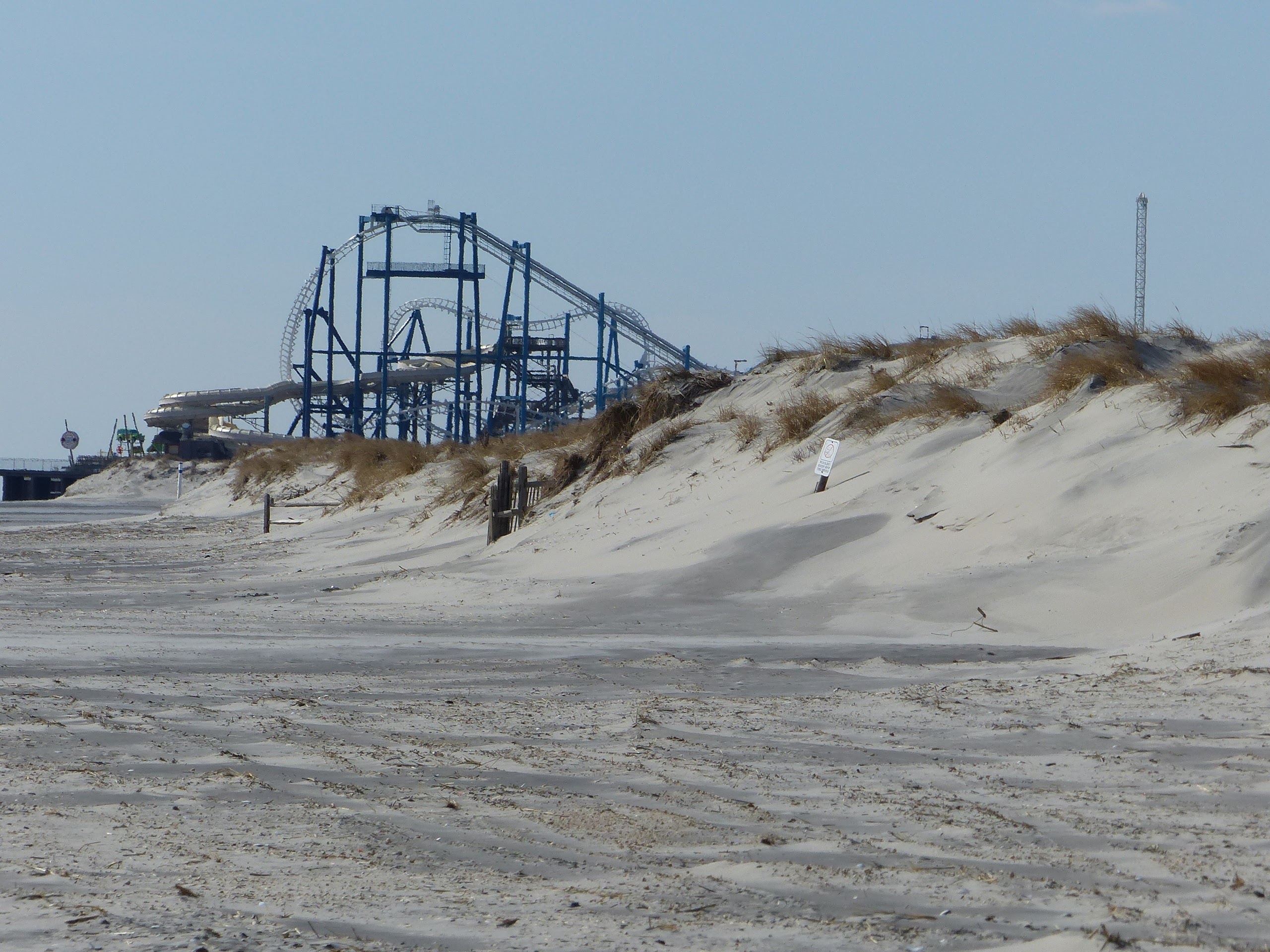AVALON – In 2017, Avalon had its largest beach replenishment, over 1 million cubic yards of sand.
March 2018 with its seemingly back-to-back nor’easters has once again left the borough with a need to move sand from more southern beaches to its troubled north end.
It is a process everyone knows will be needed on a continuing basis, the only mystery being when will natural events shift the sand from its temporary home on largely man-made beaches?
Property protection and recreational goals demand sand on the beach in areas where the natural rhythms of the ocean and associated coastal storms will take it south gradually or in explosive instances of storm-driven waves.
The community expects to have the ongoing challenge of never knowing if the artificially-placed sand will last a complete season.
What has added worry and provoked an aggressive response in the borough is the stance of the U.S. Fish and Wildlife Service which has denied the use of a million cubic yards of sand under the waters of Hereford Inlet.
Citing an obscure 1982 federal law, the Coastal Barriers Resources Act (CBRA), the Fish and Wildlife Service has maintained that federal funds may not be used to borrow sand from Hereford Inlet.
Ironically, that ban, which Fish and Wildlife states is in place to protect the environment of the Inlet, does not apply if state or local funds are used.
Since federal dollars are a major component of the regular beach replenishment process along the South Jersey shore, in 2017, communities had to scramble to create a fund, including state and municipal dollars, for the beaches in Stone Harbor.
Stone Harbor unexpectedly had to chip in over $1 million.
The CBRA was established in part to protect natural resources associated with undeveloped coastal barriers.
Yet the most prized natural resource along the Hereford Inlet, the natural reserve at Stone Harbor Point, in part exists because of the collection of sand that nature moves south annually after beach replenishments north of it.
Avalon Business Administrator Scott Wahl informed council March 14 that Fish and Wildlife is seeking to expand the protected region “up to the seawall of North Wildwood.”
The move is open for formal public comment.
Seeing a potential danger to its own need for sand, Avalon has joined with Stone Harbor and North Wildwood to oppose the measure.
While borough officials go through the process to get permits to deal with damage from this month’s storms and move sand from 34th Street to the hard-hit beaches from 10th to 14th streets, they are also preparing for a visit to Washington May 10. They hope to enlist congressional support against the proposed change initiated by Fish and Wildlife.
Last year, Avalon went to federal court to oppose the Hereford Inlet ban on sand borrowing. The courts never ruled because the communities affected had quickly come up with their alternative sources of funding along with a complex extension of the underwater pipes to allow sand dredged in Townsend’s Inlet to be pumped all along the shoreline to Stone Harbor’s northern beaches.
Soon the trucks will begin their journey carrying sand from the middle of Avalon to its north end, an effort they will repeat whenever nature robs one area and replenishes another.
This process will maintain the beaches as best the borough can until the next hydraulic replenishment process by the Army Corps of Engineers.
Meanwhile, the communities will be fighting to protect their borrow areas where the sand collects under the sea, including the waters of Hereford Inlet.
“This is a capricious and arbitrary invoking of federal law by Fish and Wildlife,” said Wahl.
When asked if the issue may be brought back to the courts, Wahl said, “Whatever it takes.”
To contact Vince Conti, email vconti@cmcherald.com.







